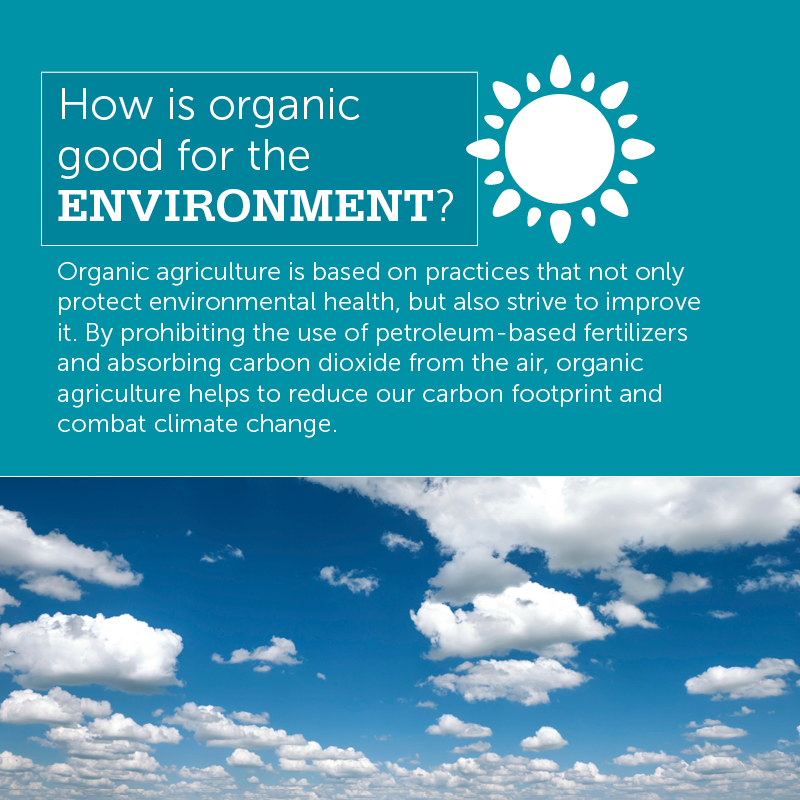 Organic agriculture is based on practices that not only protect environmental health, but also strive to improve it.
Organic agriculture is based on practices that not only protect environmental health, but also strive to improve it.
Instead of relying on synthetic pesticides and fertilizers that can deplete the soil of valuable nutrients and increase environmental degradation, organic agriculture builds up soil using such practices as composting, cover cropping, and crop rotation.
In addition, organic farmers strive to preserve and protect natural habitats with the understanding that a diverse biological landscape helps to feed both people and the planet.
Organic practices help keep our water supply clean of run-off from toxic and persistent chemicals. Moreover, by prohibiting the use of petroleum-based fertilizers and absorbing carbon dioxide from the air, organic agriculture helps to reduce our carbon footprint and combat climate change.
Research has also shown that organic farms are able to support more species than conventional farms. In a study published February 2014 in the Journal of Applied Ecology, researchers from the United Kingdom, Sweden and Switzerland found that on average, organic farms supported 34 percent more plant, insect and animal species than those using conventional methods. In addition, the organic farms had 50 percent higher pollinator species diversity.

Organic Agriculture and Climate Change Soil Health Organic Saves the Bees
